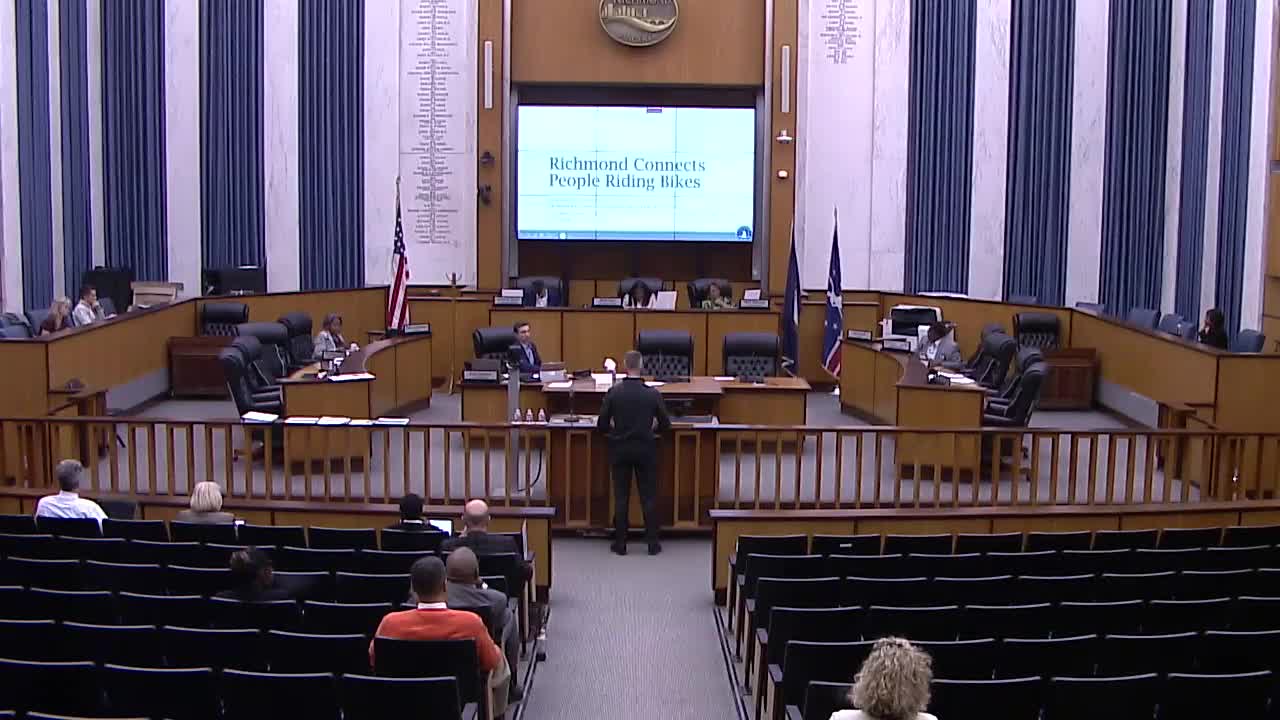Public Works outlines rapid expansion of bike network under Richmond Connects; safety trends improving
Get AI-powered insights, summaries, and transcripts
Subscribe
Summary
Transportation staff reported the city’s bike network has expanded rapidly since 2015 with plans to exceed 100 miles by 2028, highlighted Vision Zero safety goals and emphasized that most funding is federal, state or regional.
City transportation staff briefed the committee Oct. 21 on progress implementing Richmond Connects, a multimodal plan that incorporates bicycle facilities first mapped in a 2015 bike master plan.
Andy Bayno, transportation engineering program manager in Public Works, said Richmond had about 12 miles of bike routes in 2015 and is on track to exceed 100 miles by 2028 through a combination of road conversions, quick-build protected lanes and coordinated maintenance work. Bayno said the city’s street network and public support are strengths for expanding safe bike infrastructure and noted that e-bikes are increasing the practical distance riders will travel.
Staff emphasized that the bike expansion advances the city’s Vision Zero goals by redesigning streets (for example Franklin Street treatments) that calm vehicle traffic while providing protected space for cyclists. Bayno presented a three-year downward trend in severe bicycle crashes as infrastructure has expanded, reporting there was one severe bicycle crash so far in 2025 to date at the time of the briefing. He said most funding for projects comes from federal, state and regional sources (federal grants, SmartScale, CVTA regional funds, CMAQ), while local paving and maintenance activities are an important opportunity to install bike treatments cost-effectively.
Committee members discussed metrics for success beyond lane mileage — including crash reductions, students biking to school, and mode shift for commutes — and asked staff to track outcome-focused measures. Staff said they will continue public engagement, training and partnerships (including a Dutch cycling embassy workshop and local events) and pursue grant funding tied to safety and multimodal priorities.
The briefing emphasized equity measures such as e-bike voucher ideas, bike-share expansion, and partnerships with nonprofits that provide low-cost or donated bikes to residents who cannot afford them.
